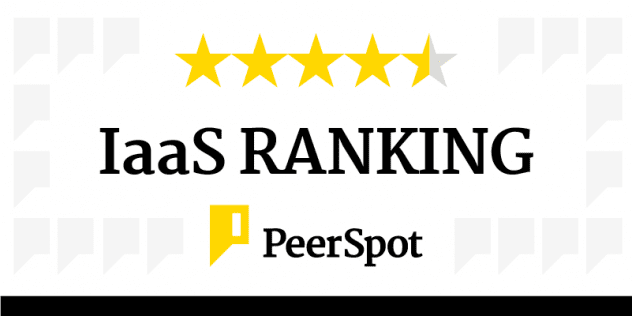About

Akamai Connected Cloud
Akamai accelerates innovation with scalable, simple, affordable, and accessible Linux cloud solutions and services. Our products, services, and people give developers and enterprises the flexibility, support, and trust they need to build, deploy, secure, and scale applications more easily and cost-effectively from cloud to edge on the world’s most distributed network.
A Better Choice
Akamai cloud computing is an exciting option for developers and enterprises to build, secure, and deliver their modern applications at planetary scale. Akamai combines the best of both worlds - the scale and breadth of core services of a hyperscaler with the simplicity and affordability of an alternative cloud provider.
Why Developers Trust Linode
Developers respect our commitment to the developer community. We don’t build products that compete with the products they’ve built.
Developers appreciate our longstanding belief in transparency. We don’t cloak our products or pricing in complexity.
Developers embrace our singular focus on infrastructure. We’ve proven time and again that a successful company can be built based on the needs of its customers.
A cloud provider developers trust because we give them an alternative to the costly, complex, and competitive choices they currently have in the market.
The Cloud Computing Market
Cloud infrastructure services are the fastest-growing segment of the mammoth cloud computing industry. The public cloud (IaaS) segment is growing at 25% year over year and is expected to reach $309 billion by 2026.
The cloud has fundamentally changed how we work, live, and play. Its network of remote servers store, manage, and process data to help individuals, companies, governments, and other organizations reduce the cost and complexity of owning and operating their own capital and resource-intensive computers. With the cloud, data and applications are more accessible to more people wherever they are connected to the Internet.
Cloud Retrospective
This fundamental shift in how business and society interacted with computers began in 1999 when Salesforce.com started the Software as a Service (SaaS) revolution. By moving computing power into the cloud, large capital outlays, scaling limitations, and data inaccessibility became part of computing’s history book. The newfound ability to virtualize hardware allowed people to pay as they went, scale up and scale down at will, and manage their infrastructure without the need for deep networking and IT expertise.
Salesforce leveraged the power of the cloud to disrupt the $3.3 billion CRM software market and become one of the most powerful software companies in the world. Companies like Amazon used the cloud to disrupt retail commerce, forever changing the world’s economic landscape. Today, we take the cloud for granted.
But back then, building your own cloud was expensive. It required massive amounts of investment. Salesforce raised $64.4 million when it was first starting out. The same went for Amazon and other early cloud adopters. To get the cost and scale benefits the cloud provided, companies needed deep pockets and even deeper technological know how.
Linux and Linode
What the industry lacked was a way to make this new computing power accessible to others. While Salesforce, Amazon, and others were building their own cloud environments, the now-ubiquitous Linux open source operating system was claiming its place as the predominant server software in the market.
Jeff Dike, an active Linux contributor, had developed a technology called User-mode Linux. UML allowed developers to create virtual Linux machines within a Linux computer. It was groundbreaking technology and opened the door for the virtualized cloud we know today.
One of those developers was a young technologist, Christopher Aker. He saw an opportunity to use Dike’s hypervisor technology not to build the next Salesforce or Amazon, but to make cloud computing less complicated, less expensive, and more accessible to every developer regardless of where they were located, what their resources were or who they worked for. The company he built — Linode — pioneered cloud computing and, heavily influenced by the open source movement it was born from, remains driven not by profit, but by a larger mission to democratize cloud computing by empowering developers and helping the world innovate.
That mission and belief system — to make things more affordable and accessible to everyone — became the corporate DNA of Linode. Aker knew that certain guiding principles were needed to stay true to that mission. The first was that developer control was paramount, which meant the company had to be built on open standards with a guarantee of "no vendor lock-in". The second was that it had to be customer centric, free to make decisions in the best interests of its customers and not outside investors or shareholders.
Linode and Akamai Today
Just as it did when pioneering cloud computing in 2003, we continue to play a significant role in the technological advancement of cloud computing.
In March 2022, Akamai acquired Linode. Akamai’s DNA is rooted in solving tough infrastructure problems at planetary scale. Akamai invented the CDN (content delivery network). It built itself into a world-class security company. And with Linode, Akamai is set to make history again with cloud computing by marrying Linode’s experience in infrastructure as a service with Akamai’s leadership in scale and security to create the world’s most distributed compute platform.
Linode started as a company built by developers for developers. Today, it continues to serve these new innovators as well as the growing teams, startups, and larger enterprises it helped create.
How We Compete
Compare Pricing
Go social and engage with us on your favorite platform…
Ready to get started or have questions?
Set up your free account today or contact a sales consultant to learn more.

